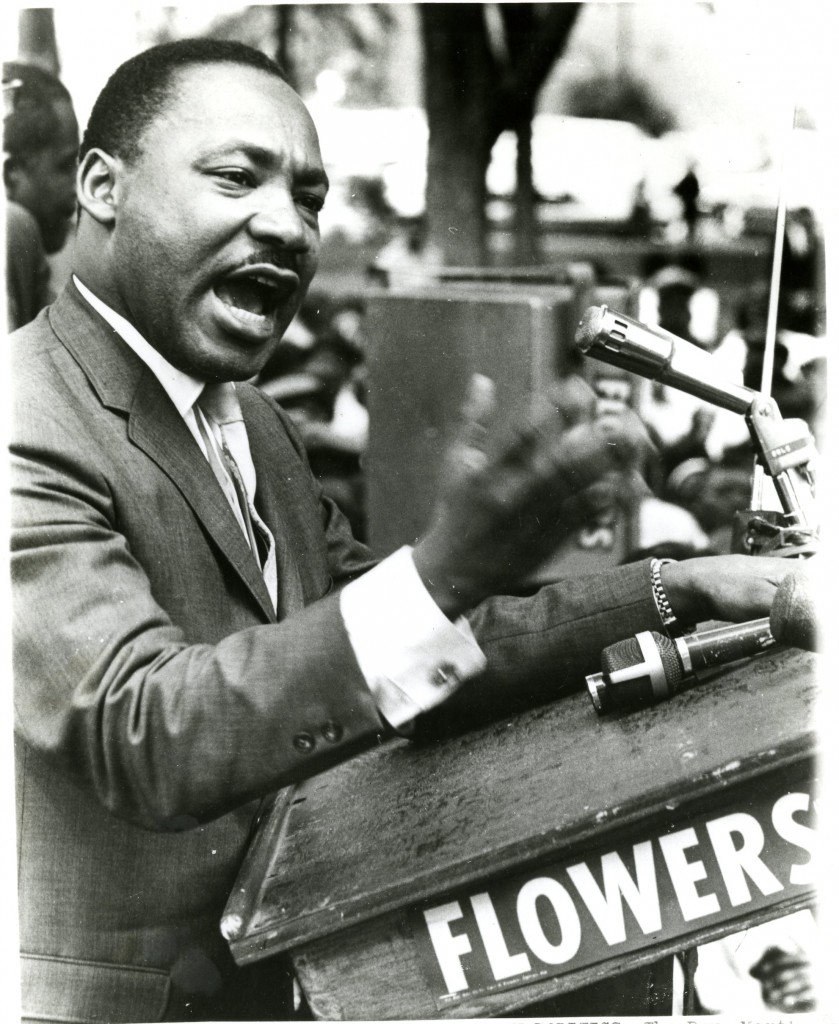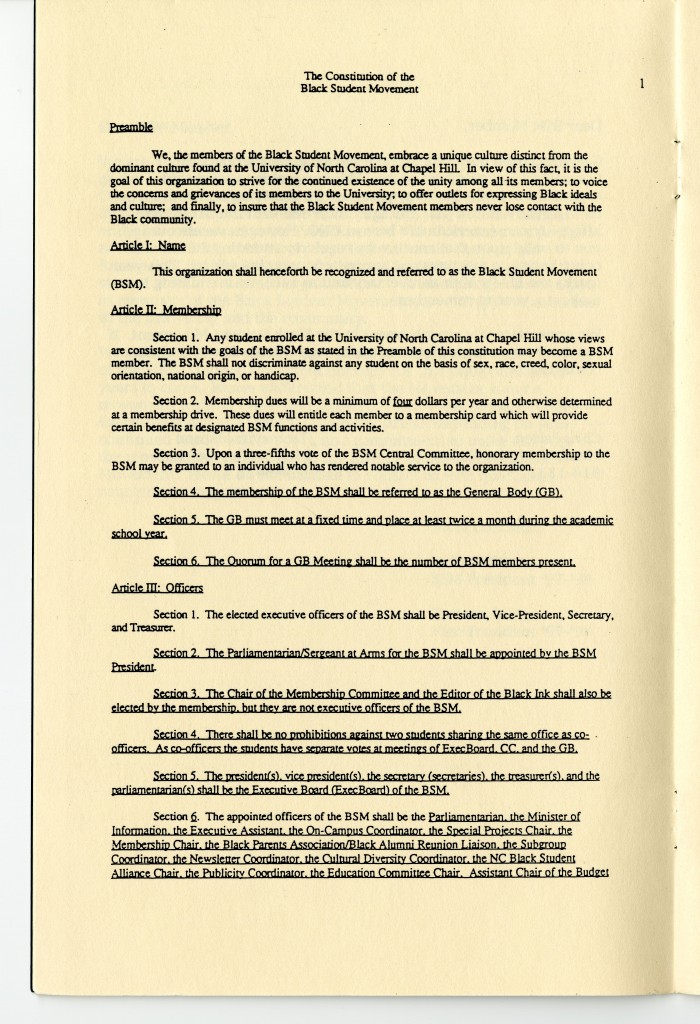
On April 4th, 1968, Dr. Martin Luther King, Jr. was shot and killed at the Lorraine Motel in Memphis, Tennessee. As the nation reeled in shock, UNC-Chapel Hill also reacted to the vicious ending of a life dedicated to the non-violent pursuit of Civil Rights.
UNC-Chapel Hill officials held a memorial service attended by over 2,000 people, but the Black Student Movement (BSM) staged its own remembrances of Dr. King. On April 6th, members of the BSM marched down Franklin Street and burned several Confederate flags on the lawn of the Kappa Alpha Fraternity house. At the time, Kappa Alpha was supportive of the Old South and the Confederacy.
In addition to holding a separate memorial service for Dr. King, the BSM also called on the campus’ African American workers to not attend work on April 9th. Although Chancellor Sitterson had announced a half-day for campus workers on April 7th, Preston Dobbins (the president of the BSM) encouraged the day of remembrance because he felt that the University had not responded to Dr. King’s assassination with the appropriate amount of respect. Ninety percent of the African American workers on campus stayed home from work that day.

The BSM may be most remembered for the 23 demands of December 1968, but the students’ collaboration with the campus workers in the wake of Dr. King’s assassination was an important first step in the relationship between the two groups. Over the years, students of the BSM have supported UNC-Chapel Hill’s non-academic workers such as groundskeepers, food workers, and housekeepers.
Today, we at University Archives remember the life and death of Dr. Martin Luther King, Jr. and the birth of the Black Student Movement on our campus. Although the group began in such dark times, we commend them for forging relationships on our campus and moving forward.
Visit The Carolina Story, UNC’s virtual history museum, for more information on the Black Student Movement.
